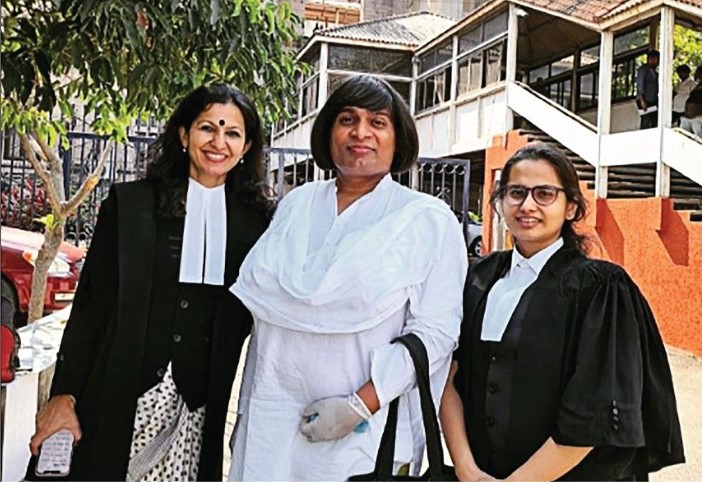The Telangana High Court recently struck down the validity of Telangana Eunuchs Act, 1329 Fasli (“The Act”), holding that it was an anachronistic legislation that violated the fundamental rights of the transgender community. The Act was under charge for mandating the maintenance of a register for ‘eunuchs’ in the state as well as allowing them to be arrested without warrant for cross-dressing, singing, dancing, or participating in other public entertainment. The Act also stated that transgender persons were suspected of kidnapping or emasculating of young boys as well as other unnatural offences.

Three transgender activists, Vyjayanti Vasanta Mogli and others had approached the Telangana High Court challenging the vires of the Act on the grounds that it criminalised and discriminated against transgender persons, that it violated the rights of trans persons under Article 14 and 15 (1) of the Constitution as well as placed severe restrictions on their freedom of speech and expression and right to privacy, which is guaranteed under Articles 19(1) and 21 of the Constitution, respectively. There were also other petitions filed, seeking coverage for transgender persons under the Asara Pension Scheme, seeking reservations in public employment among other reliefs sought.
The final judgement delivered by a bench comprising of Chief Justice Ujjal Bhuyan and Justice CV Bhaskar Reddy was passed in all these petitions. The judgement deserves praise for a number of reasons. It recognised that the Telangana Eunuchs Act was identical to the Criminal Tribes Act of 1871, an outdated legislation which criminalised several identities including transgender persons and since the said Criminal Tribes Act was repealed, there was no reason why the Telangana Eunuchs Act should still remain on the statute book. It concluded that the Act was an anathema to our constitutional philosophy because, just like the former Section 377 of the Indian Penal Code, it perpetuated old stereotypes that typecasted transgender persons into performing ‘unnatural offences’ against the order of the society. Another point that stood out in the judgement was the manner in which it traced the equality and privacy jurisprudence and held that trans persons are entitled to the benefit of equal citizenship without discrimination and to the equal protection of law.
The Court also acknowledged several important issues plaguing the transgender community today, such as lack of access to legal representation, and tried addressing them by ordering greater involvement of State Legal Services Authority within the work of the concerned Transgender State Welfare Board.
Finally, the Court also directed the inclusion of transgender persons within the ambit of the Asara pension scheme started by the Telangana government and it directed the State government to provide reservation of seats for transgender persons in admission to education institutions and in Government employment. Recognising an implementation concern that continues to affect several states post the passing of the Transgender Persons (Protection of Rights) Act, 2019, it also ordered the Telangana State Welfare Board to step up in its duty towards monitoring efforts being taken up for the welfare of the transgender community.
This judgement marks a positive step towards advancing the rights of transgender persons in the country. However, one must admit that there are some points which could have been given greater thought by the court. For example, it could be more sensitive while using the term ‘eunuchs’, which was defined by Telangana Eunuchs Act as “all persons of the male sex who admit to be impotent or who clearly appear to be impotent on medical inspection” and is used similarly in common parlance. While the Court did address the derogatory connotations attached to the word, it could have elaborated on this and the negative connotations of such language even more strongly. The Court could have also used this opportunity to explore the issue of horizontal reservations in education and employment-related institutions. Horizontal reservations provide a substantive way of addressing discriminations that happen along different intersections of identities, like gender, religion, caste, and class and have therefore become an important concern for the community today. Accommodating such concerns would have enriched the judgement and added to the progressive policies that will now take inspiration from it.
This blog is written by our intern Sudhasri Yadavalli, a 5th year law student at Jindal Global Law School, O.P Jindal Global University.
